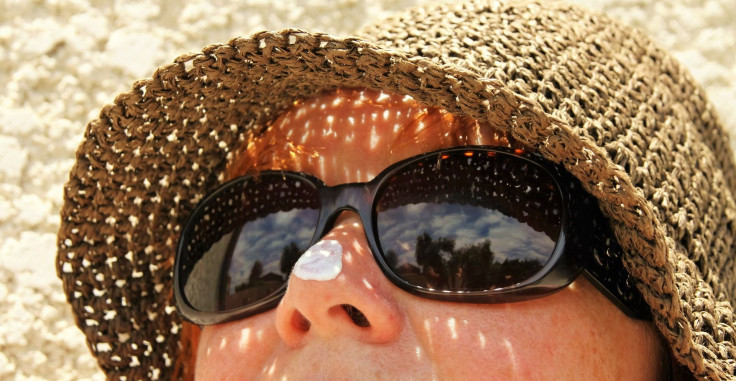How To Get Enough Vitamin D In The Summer Months, But Still Protect Yourself From Sun Damage

It would seem that summer is the best time of year to get plenty of Vitamin D, seeing as our main source of it comes from the sun. People tend to suffer vitamin D deficiencies during the winter months, when less sunlight and more indoor time leaves us paler and more sheltered from any ultraviolet (UV) rays.
But even during summer months, you may not be getting enough Vitamin D. Maybe because you’re avoiding that very sun, keeping cool in air-conditioned offices or being proactive about preventing sunburn. For the pale people out there, staying in the shade and lathering on the sunscreen is a common activity in the summer, which can result in continued Vitamin D deficiencies.
In addition to sunlight, we can get Vitamin D from food and supplements. Foods high in Vitamin D include fatty fish (tuna, salmon), beef liver, cheese, and egg yolks, among others. However, simply eating a lot of Vitamin D-rich foods is not enough to keep you healthy. The sun still remains the biggest source of Vitamin D.
If it’s wintertime, or it’s the middle of summer and you have to keep the sunscreen on, some doctors recommend using supplements. There have been several contradicting studies on the efficacy of supplements, with some scientists arguing they’re entirely useless, and others claiming that taking supplements can be helpful if you do have a Vitamin D deficiency and don’t get enough sun. In addition, a recent study found that nutritional supplements taken in addition to antidepressants actually had a beneficial effect on depression patients. Most scientists agree that supplements may be helpful, but first talk to your doctor before taking them.
In addition to potential supplements and foods, the keys to managing UV rays in the summer are caution and moderation. While you shouldn’t be in noon sun without sunscreen in general, just spending about ten to 15 minutes in the later afternoon sun every day will get you the Vitamin D you need. If you’re going to spend the entire day at the beach, however, there’s no such thing as too much sunscreen and you should reapply it every hour or so. Get your sun and Vitamin D in healthy, moderate doses.
You can always take care of your eyes no matter what time of day it is, or whether or not you’re wearing sunscreen: UVA- and UVB-blocking sunglasses will protect your eyes from damage.



























